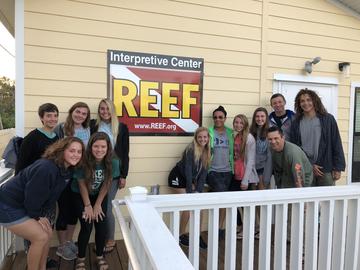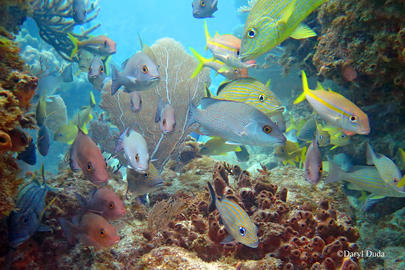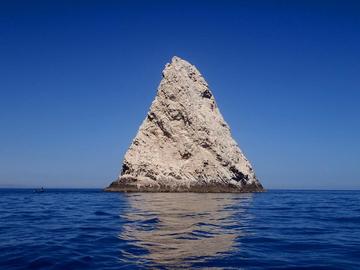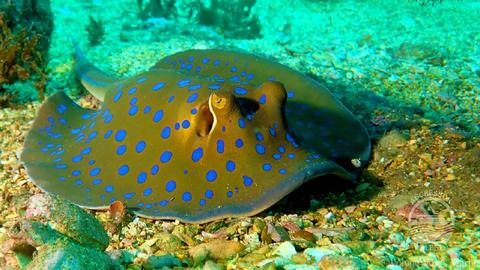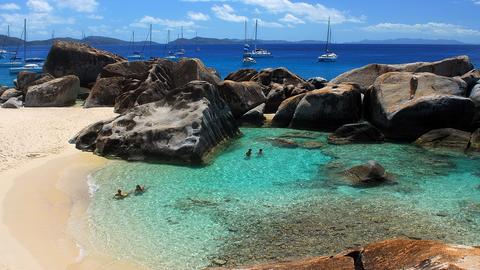Last month, REEF’s Explorers Education Program had the pleasure of working with two collegiate groups in Key Largo, Florida. Each group of students spent one fun-filled week working alongside REEF staff and interns to learn about TWA (Tropical Western Atlantic) fish identification and the REEF survey method. The first group was nine students from Georgia State University, accompanied by their professor, Dr. Amy Reber. This weeklong education program has become an annual component of Georgia State's marine ecology course.
Twenty-five years ago, REEF began collecting data on the abundance of marine fish populations, and since then the Volunteer Fish Survey Project has grown to be the world's largest marine life sightings database, made up of more than 200,000 surveys conducted by over 15,000 volunteer divers and snorkelers worldwide. To celebrate 25 years of citizen science, REEF is hosting a 25th anniversary Field Survey this summer in Key Largo, Florida, where the very first REEF Trip was held in 1993.
With stunning mountainous desert landscapes topside and fascinating rocky reefs and pinnacles underwater, the northern Sea of Cortez is a favorite destination for REEF surveyors. The unique marine life, including nudibranchs, rays, eels, octopuses, blennies, jawfish, and even sea lions, make it easy to understand why Jacques Costeau nicknamed this region, "the world's aquarium." In addition to numerous fish and invertebrate families, attendees may also see pilot and sperm whales while in transit and have the opportunity to snorkel with whale sharks.
Located on the southeastern tip of the Arabian Peninsula, the Sultanate of Oman is one of SCUBA diving's best kept secrets. The country has a subtropical desert climate with mild warm winters and hot summers, with a landscape that includes pristine reefs, deserts, mountains, green oases, and beautiful beaches. This will be REEF's second Field Survey to the new Indian Ocean and Red Sea region, and our first-ever trip to Oman.
REEF is excited to have rescheduled our British Virgin Islands Field Survey after postponing this trip in 2017. Join us in the BVI for a stellar Caribbean diving experience aboard the Cuan Law, the largest trimaran in the world! The British Virgin Islands have more than 100 spectacular dive sites to explore, including coral gardens, pinnacles, and wrecks teeming with fish. Blackbar soliderfish, glassy sweepers and eagle rays await divers in the clear, calm waters surrounding the Islands.

